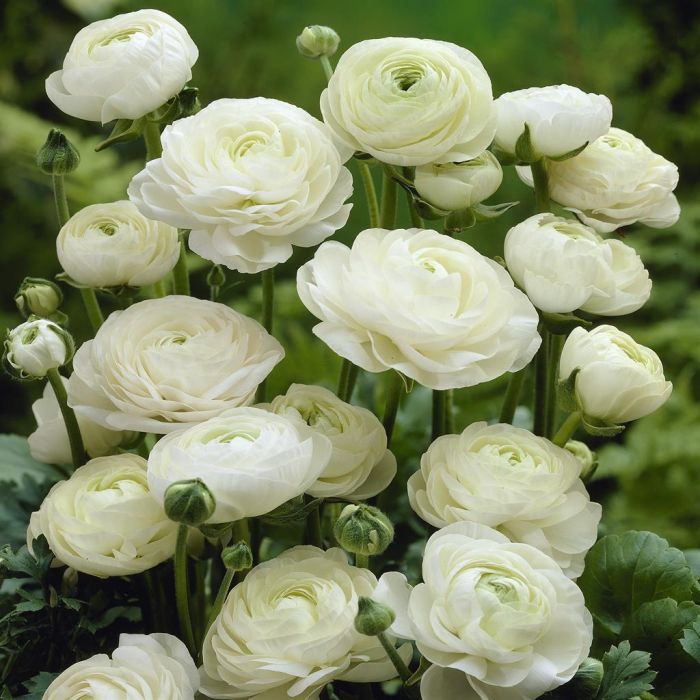Ranunculus asiaticus White x 20
| Botanical name | Ranunculus asiaticus White |
|---|---|
| Free Shipping | No |
| Category | Ranunculus |
| Qty | 20x |
| Flowers | No |
| Fragranr | No |
| Cutflowers | No |
| Fruits | No |
| Edible | No |
| Location | Sun and shade |
| Hardy | Yes |
| Groundcovering | No |
| Naturalizing | No |
| Preferred Soil | Any soil |
| Poisonous | No |
| Price per item | € 0,19 |
How to take care of Ranunculus asiaticus White x 20
Soak the Jaskier azjatycki bia³y tubers overnight in warm water. The Jaskier azjatycki bia³y tubers should be planted 2 inches deep with the little "fingers" pointed downward and 2 " apart in slightly acid well drained soil in a sunny sheltered spot in the garden. Be careful not to break the little fingers as they are rather brittle. They grow best when the soil around the crown is dry but the roots are kept moist. Always water well after planting to stimulate growth. Remove the faded flower heads as they appear as this helps to promote new growth. At the end of the summer the leaves will turn yellow and die back as Jaskier azjatycki bia³y slips into dormancy. Foliage may be removed at this point. Your Jaskier azjatycki bia³y will rest for a few months before beginning the next growing cycle. Please note to survive harsh winters apply a mulch (straw or newspaper) over them to avoid any frost damage. Remove when all danger of frost has passed. For planting in pots indoors: Plant 3 corms 1" deep in a 6" pot and give a little water to dampen the soil. Don't water the tubers again until you see shoots emerging unless it dries out completely, apply fertilizer when the Jaskier azjatycki bia³y begins to bloom. Place the pot in a full sun position. Ranunculus are happiest with about six to eight weeks of cool sprouting temperatures. They will also die back just the same as if you had planted them outdoors. Jaskier azjatycki bia³y will take a rest for several months, during which time you must not water it. Dig them up and store them in a cool, dark, dry location to replant next spring.


